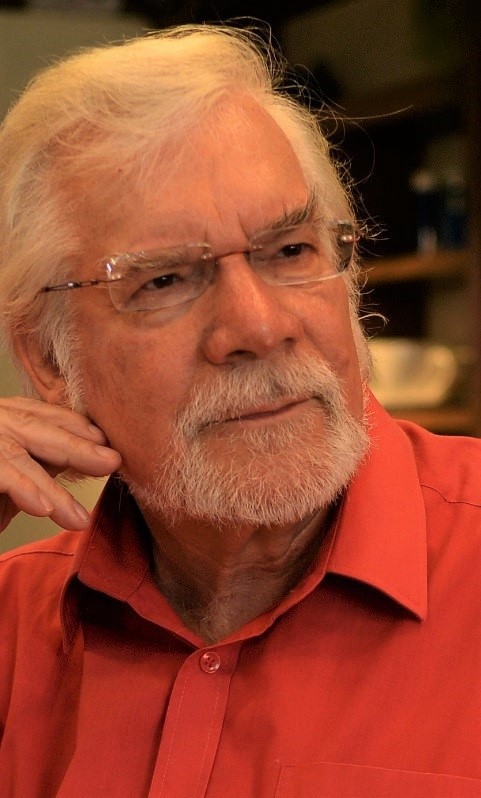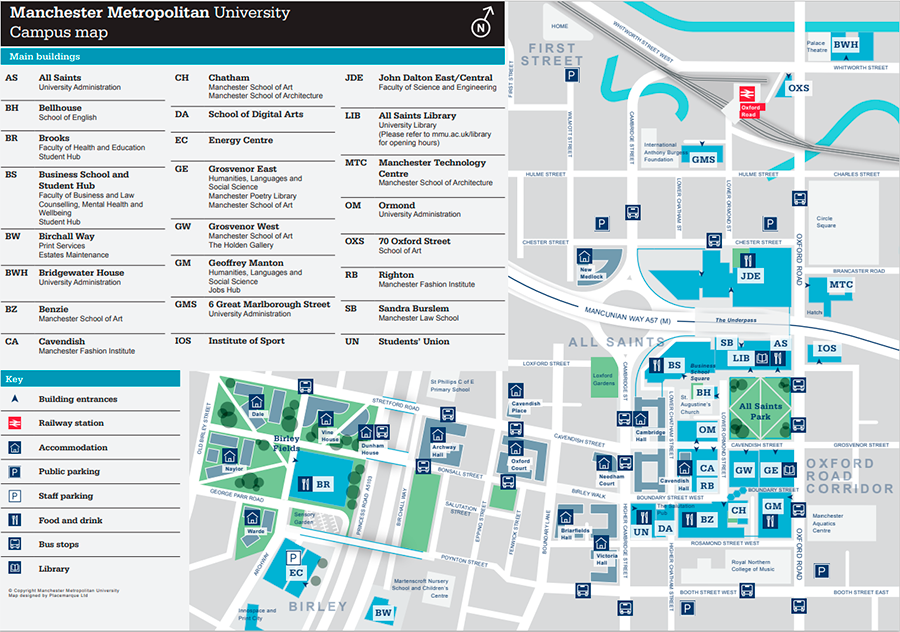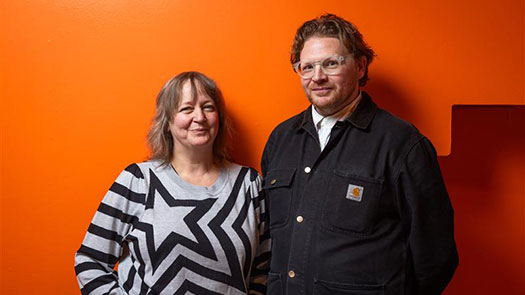Weds 4 – Fri 6 September, 2024
Location: Manchester Metropolitan University Business School
Event Type: In-person
Join us at the MeCCSA Conference 2024, a key gathering for media, communication and cultural studies scholars and practitioners. MeCCSA is the subject association for the field of media, communication and cultural studies in UK Higher Education.
This event brings together experts from various fields to discuss and explore cutting-edge research, developments and insights in the realm of media and communication.
Conference Highlights
- Keynote Speakers – Engage with influential figures who are shaping the future of digital arts and media.
- Panel Discussions – Participate in thought-provoking discussions on contemporary issues and trends.
- Paper Presentations – Discover ground-breaking research and projects in the field.
- Workshops – Gain hands-on experience with the latest digital tools and technologies.
- Networking Opportunities – Connect with fellow scholars, artists, and industry professionals.
Conference Programme
View the full programme for this year’s MeCCSA conference:
Keynotes
Confronting Catastrophe: Digitalised Capitalism and the Battle for a Common Future hosted by Graham Murdock

Graham Murdock is Emeritus Professor of Culture and Economy at Loughborough University .He has published widely in the sociology and political economy of culture and communications. He has been a visiting professor at the Universities of Auckland, California at San Diego, Mexico City, Curtin, Bergen, the Free University of Brussels, and Stockholm and is currently Guest Professor at Fudan University in Shanghai. His work has been translated into 21 languages. Recent books include; as co-editor, Money Talks: Media, Markets, Crisis (2015), New Media and Metropolitan Life: Connecting, Consuming, Creating (in Chinese) (2015) and Carbon Capitalism and Communication: Confronting Climate Change (2017) His latest book News Corp : Empire of Influence ,is published by Routledge in August this year.
Speaking on the keynote, Graham Murdock said: In classical Greek theatre catastrophes occurred when underlying tensions and contradictions came to a head in the final act. We are currently confronting a catastrophe produced by three converging crises: a rapidly worsening climate and environmental emergency; the economic, social and moral havoc inflicted by market fundamentalist policies; and the destruction of deliberative politics, opening the way for reactionary populism and authoritarianism.
These crisis have deep roots in the organisation of capitalism but their intensification since the 1990s coincides in the West with the corporate capture of digital communication technologies , the unprecedented concentration of private ownership and control over their development , and the increasing reorganisation of production, administration, consumption, and sociality around their capacities.
The paper has two main aims. Firstly, taking the climate emergency as a particular focus I want to detail how digitalised capitalism is contributing to the current catastrophe with increasing calls on energy and scarce resources, installing the aggressive promotion of unsustainable levels of hyper consumption as the basis of the dominant platforms’ business models, hollowing out public space , and attenuating solidarities respectful of difference. Secondly, I want to ask if we have now reached the point no return or if it still possible to construct a public culture hospitable to diversity and principled disagreement, securely rooted in a recognition of shared fate and commitment to social justice, and underpinned by an ethos and care and custodianship of the natural world.
Keynote 1: Feminist Futurism: transcending technocratic mediocrity hosted by Sarah Atkinson

Sarah Atkinson is Professor of Screen Media at King’s College London, Editor of Routledge Resources Online: Screen Studies, and co-editor of Convergence: The International Journal of Research into New Media Technologies. Sarah has published widely on the film, cinema, screen, and immersive technology industries. She is currently an Arts & Humanities Research Council (AHRC) Fellow and curator of GLOW: Illuminating Innovation, a new exhibition which showcases ground-breaking creativity by women in technology at various locations on Strand Aldwych, London. The exhibition stems from her forthcoming book with Vicki Callahan: Mixed Realities: Gender & Emergent Media (Wayne State University Press, 2025).
The creative technology industry faces a deepening crisis, where progress has been hindered by economic conditions and systemic exclusion of women and marginalised groups, with women remaining significantly underrepresented. The World Economic Forum’s Global Gender Gap Report 2023 reveals that women comprise a mere 29.2% of all STEM workers.
This talk presents outcomes from research into the experiences of women, non-binary, and trans individuals in creative production using emerging digital technologies. These include the ground-breaking exhibition “GLOW: ILLUMINATING INNOVATION” which showcased the transformative artistic contributions of women spanning five decades. These creative trailblazers propelled technological advancements into the mainstream, despite inequities and funding disparities that previously led to the neglect and oversight of their significant innovations.
To transcend the current crisis of technocratic mediocrity – characterised by the unexceptional and socially unaware systems that perpetuate inequity, and which yet again threatens to undermine and obscure those at the heart of genuine creative innovation – this talk proposes a Feminist Futurism.
Feminist Futurism is shaped by creative risk-taking and artistic experimentation, breaking free from the caution and stagnation that characterize the present state of technological development. It is an urgent call to transcend the limitations of existing technology-driven systems and to create a future that is equitable, innovative, and socially conscious.
Keynote 2: Nu-Metal, Old Politics: The Soundtracks and Stylings of a Subculture in Crisis hosted by Francesca Sobande
Subcultures have been identified as spaces and scenes that emerge in response and resistance to societal conditions and crises. Often associated with ideas of “alternativeness” and “underground” activity, subcultures have been positioned as challenging a status quo. In other words, subcultures have been framed as a crisis in themselves. Still, as extensive media and cultural studies research has highlighted, subcultures can and do become “mainstream”. What’s old is new again. Focusing on analysis of recent iterations and imaginings of nu-metal across media, music, and fashion, this talk will consider key components of the soundtracks and stylings of a subculture in crisis. Addressing the racial, gender, (inter)national, and class politics of a scene known for blending the grammars and aesthetics of rap with metal, this session will tackle the old politics and contemporary mediation of nu-metal, while foregrounding the distinct role of Black cool, creativity, and culture in this.
Digital Inclusion Roundtable
Digitisation is a key feature of contemporary urban development, yet many citizens still lack the devices, connectivity and skills to enjoy the benefits that being digitally included can offer – financial, but also social and cultural. According to the Good Things Foundation, 6.9 million people in the UK are digitally excluded and therefore unable to access services that are increasingly moving online – from booking a GP appointment to paying for parking. This is a problem that was brought to light in the Covid 19 pandemic and that continues to persist in the post-pandemic era of economic perma-crisis. At a time when some people need to make a choice between bread and data, how can digital cities become fully inclusive? How can we stop the digital divide from widening the inequality gap? And how can we measure the impact of any interventions? This roundtable discussion will examine the roles of educators, policy makers, non-profit organisations and technology companies in closing the digital gap, with a focus on examples of good practice and their impact.
Speakers
- Dr Evie Lucas, Manchester Metropolitan University
- Prof Simeon Yates, University of Liverpool
- Dave Carter, University of Manchester
- Zoe Gould, Manchester Digital Studio Director at Deloitte Digital
- Helen Milner OBE, Good Things Foundation
- Beena Puri, Greater Manchester Combined Authority
Congratulations to the winners of the MeCCSA 2024 Conference PhD Bursary Scheme
Andy Porter, Farzeen Heesambee, Wei Zhao, Maike Dinger, Quiang Zhang, Leila Adamzad.
How to Attend
To attend the MECCSA Conference, please click to book your ticket below. The event will be open to both members and non-members, with members receiving a discount.
Conference dinner
Reserve your place below at the MeCCSA Conference ‘Dinner’, done differently in Manchester.
Accommodation
You may wish to stay in the Manchester Met En-suite Halls of residence during the conference:
Or, book a room in one of Manchester’s hotels:
Finding your way around

MeCCSA 2024 will take place across SODA (DA) and the Business School (BS).
Any Questions
For event enquiries, please contact MeCCSA2024@mmu.ac.uk




